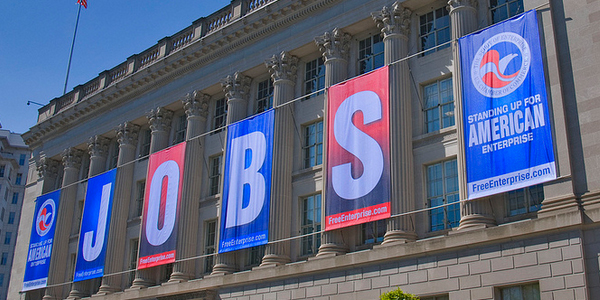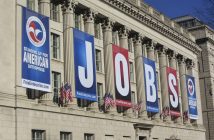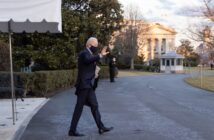The U.S. Government will begin handing out the second half of the annual 85,000 H-1B temporary professional worker visas this month. These visas are valid for three years and renewable for an additional three years. Most of these visas are for information technology (IT) workers, and most of them are used by foreign-based employment services firms (“body shops”) to rent out these workers to U.S. companies that seek to cut costs by replacing older permanent workers with younger foreigners.
This in-shoring of foreign workers into U.S. jobs by these foreign firms was documented in an April 1 article in Computerworld. Most Americans are familiar with the off-shoring of low wage U.S. jobs to foreign destinations where wage rates are lower, but the in-shoring of foreign skilled workers to take U.S. jobs is less known or understood. That largely is because it attracts less press attention. Understanding the impact of this in-shoring is further complicated by the fact that even more foreigners arrive to do temporary visas on L visas for intra-company transfers. They may stay for up to five years.
The public thinks that these visas are issued when U.S. workers are not available for the job. But that is not true. There is no requirement for seeking or hiring a qualified U.S. worker before hiring an H-1B worker. The foreign workers are often used to replace U.S. workers already on the job. The ability to discriminate against U.S. workers is built into the visa system.
The public should also be aware that the real number of H-1B visas issued is obscured because the cap does not apply to non-profit organizations, K-12, schools, universities, or federal, state and local governments. How many H-1Bs are issued above and beyond the 85,000 cap? The government does not tell us. We also do not know how many H-1B workers there are in the country because the government does not tell us that, either. It may not even know, because the entry-exit system for recording the arrival and departure of foreigners remains incomplete – despite laws requiring that data gap be closed.
Do many of the foreign workers who received H-1B visas fail to depart when their visa expires and become illegal aliens continuing to use the SSN given to them when they receive the visa? Once again, the government does not tell us. Foreign students are monitored by the schools that control the visa issuance process so that the government has a reasonable basis for knowing whether they leave when required. It would make more sense for Congress to require a “hire Americans first” provision for the visa and require employers to provide reports on their foreign workers similar to those that are required for foreign students.





8 Comments
I refuse to speak to someone on the phone that doesn’t speak English!!! I tell them immediately that I have to speak to an American…
The H-1-B visa professional imports do force educated US citizens out of work. This group also makes overall US unemployment/underemployment figures look much lower than they actually are for US citizens, especially white educated women professionals, in effect discriminating against this group of US citizens in their own country. New State policies/programs also increase the importation of foreign workers, in professions which already are glutted with qualified US educated job and business loan applicants. So these foreign imports worsen, or may actually have created, the student loan crisis–by blocking US-educated, US citizens from making tuition repayment because they are blocked from their anticipated wages and salaries.
Jack you write abut Immigration policy YET you have no idea about the system. WRONG there is a process put in place before hiring an H1-B.
Roy, You Haven’t Read Past FAIR Articles
Proving they hire ’em on the cheap anyway.
Yeah, and the “process” is that the companies claim they searched high and low to find an American to fill the job.
And naturally they don’t have to PROVE they did, like in other countries, we have to take them at their word. Like honest Mark Zuckerberg, the guy that was accused of swindling all his original partners in Facebook. It’s all just a big coincidence that it’s far cheaper for them to bring in foreign workers rather than find an American.
I Call It Insourcing
And its far worse than outsourcing because legal Americans are denied access to the jobs here in America, where they’ve paid taxes.
Typical. If you read the link, the two top firms for most H1B visas are India based. We have the US government doing their best to see not only Indian workers compete with Americans for jobs, but they allow Indian firms to import their workers here, and those firms use OUR infrastructure to make money at our expense.
There is also a link to a column by Paul Krugman, who notes there is no “skills gap”. But he can’t quite bring himself to mention that we keep allowing big business to play this card because they want to import cheaper workers, at all levels.
To be clear, the Krugman link is contained in the Computerworld link.